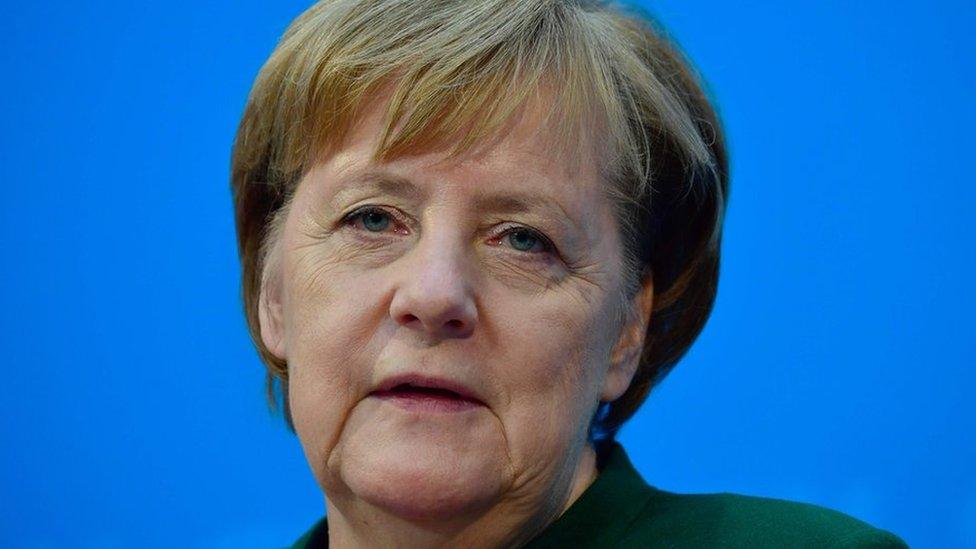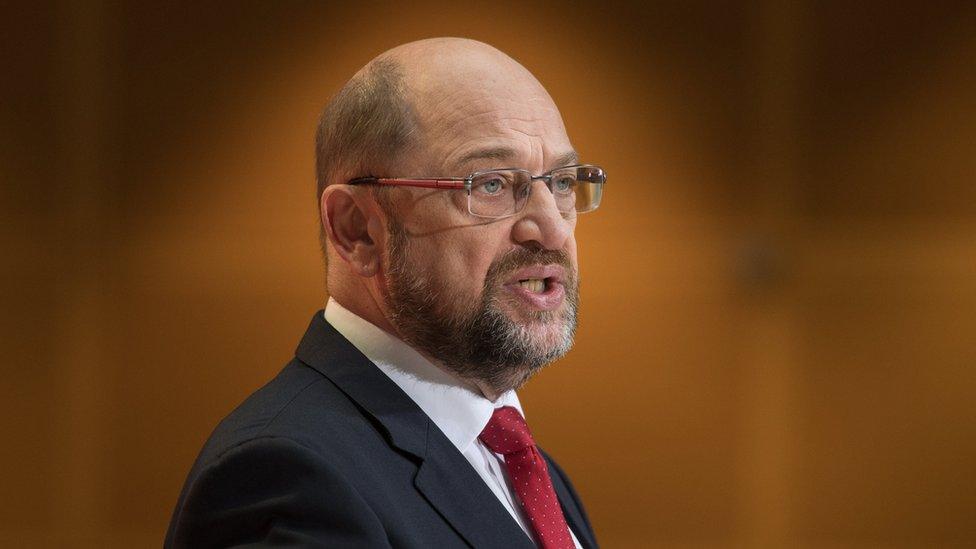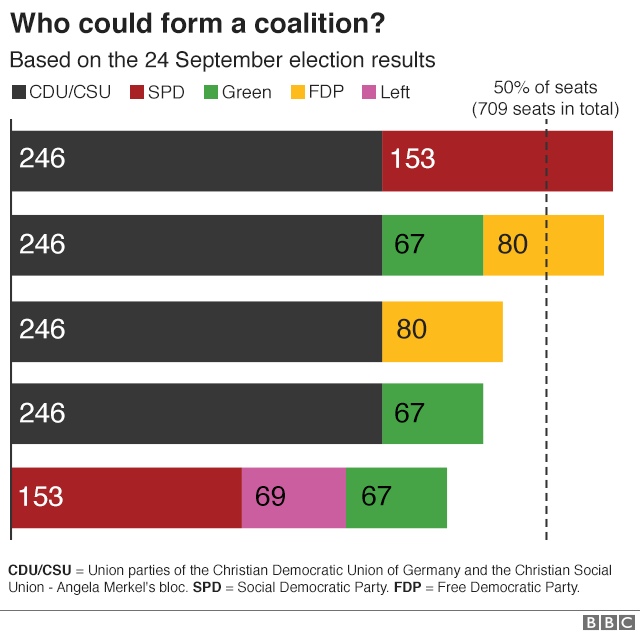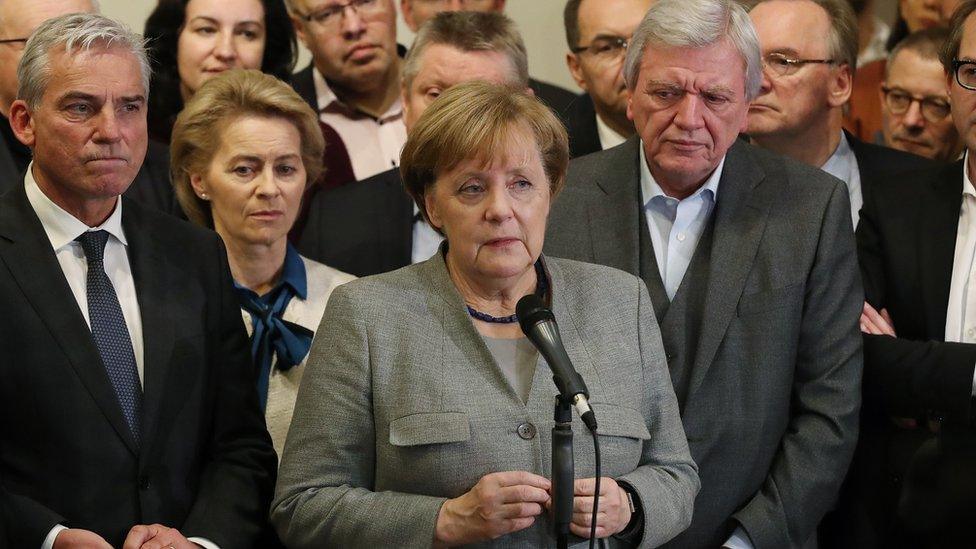Germany coalition: Crucial week of talks in bid to end impasse
- Published

Mrs Merkel's efforts to form a three-party coalition failed last week
German Chancellor Angela Merkel and her former centre-left partners are preparing for crucial coalition talks in a bid to end a political stalemate.
After initially refusing to hold discussions with Mrs Merkel's CDU/CSU conservative bloc, the Social Democrats have agreed to meet her on Thursday.
They differ over issues such as housing, healthcare and migrants.
Mrs Merkel failed to form a coalition government with the liberal Free Democrats and the Greens last week.
The FDP walked out after four weeks of talks, saying there was "no basis of trust" between the parties.
What will be discussed?
In the election campaign, the Social Democrats (SPD) favoured more spending on education and infrastructure, changes in health insurance, and no cap on the number asylum seekers.
Meanwhile, Mrs Merkel has said she wants to cut some taxes. She may also want to pursue a tougher migrant policy to win back conservative voters.
Analysts say the SPD has the stronger hand in the negotiations and is expected to have significant influence in any deal.

Mr Schulz came under pressure to enter talks with Mrs Merkel's conservatives
Under pressure, SPD leader Martin Schulz agreed to talks with Mrs Merkel's Christian Democrats (CDU) and the Christian Social Union (CSU).
The SPD governed in a "grand coalition" with Mrs Merkel between 2013 and 2017.
But Mr Schulz promised to take his party into opposition after September's election, when his party had its worst result since 1949.
On Monday he appeared to contradict this promise slightly, telling journalists in Berlin that all options were still on the table.
What could happen?
The SPD could join Mrs Merkel in a coalition
Mrs Merkel could form a minority government with the Greens after the FDP pulled out of talks. But the chancellor previously said she preferred new elections to an unstable minority government
President Frank-Walter Steinmeier could call a new election, after a long drawn-out process that would take months. Polls suggest a new vote would produce a result similar to September's election. There is also the fear that the far-right Alternative for Germany (AfD) could benefit the most
In the meantime, who is governing?
Mrs Merkel and her ministers remain in office in a caretaker role until a new government is agreed.
The newly-elected German parliament sits as normal.

The delay in forming a new coalition - the biggest crisis of Mrs Merkel's career - has worried some European Union allies, who see Germany as a pillar of stability in the bloc.
Speaking on Monday after a meeting of CDU's leadership, the chancellor said Germany needed a stable government as soon as possible.
- Published22 November 2017
- Published20 November 2017
